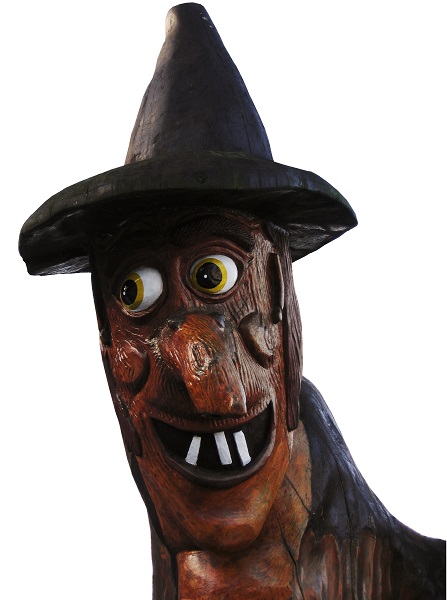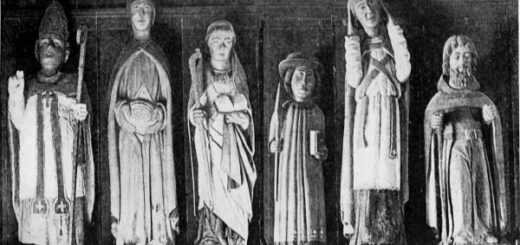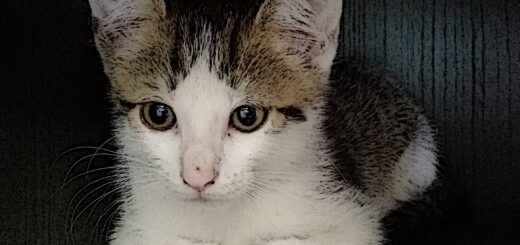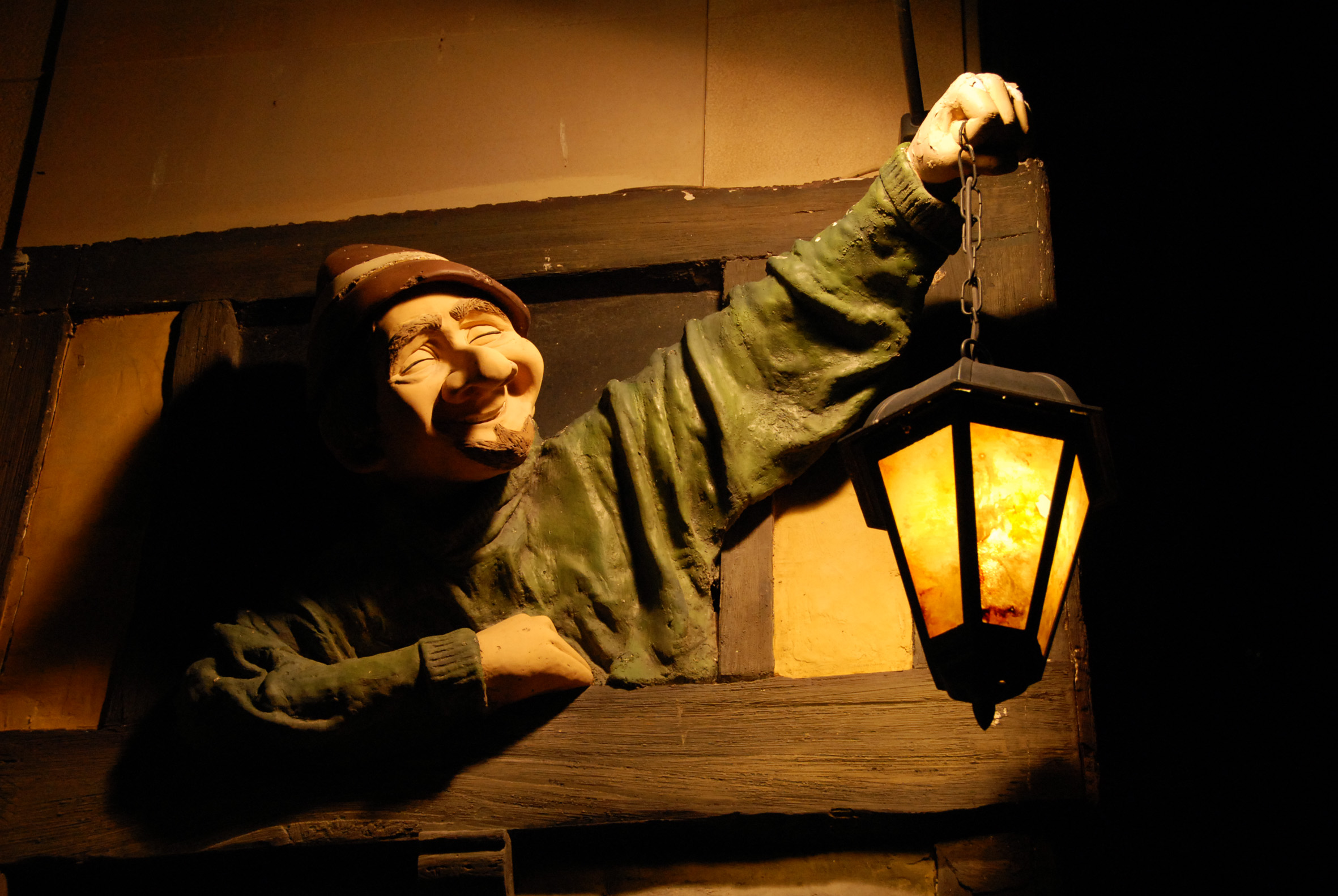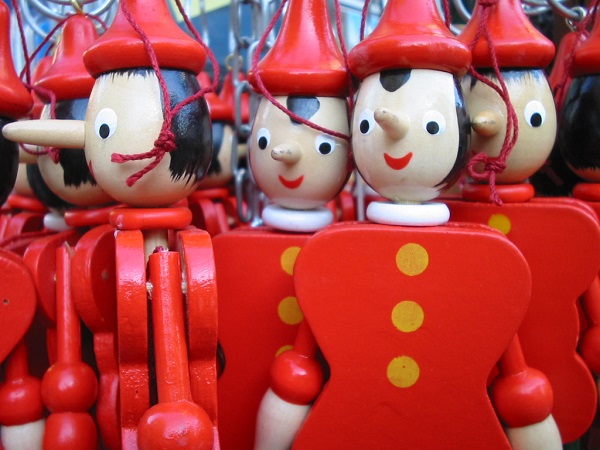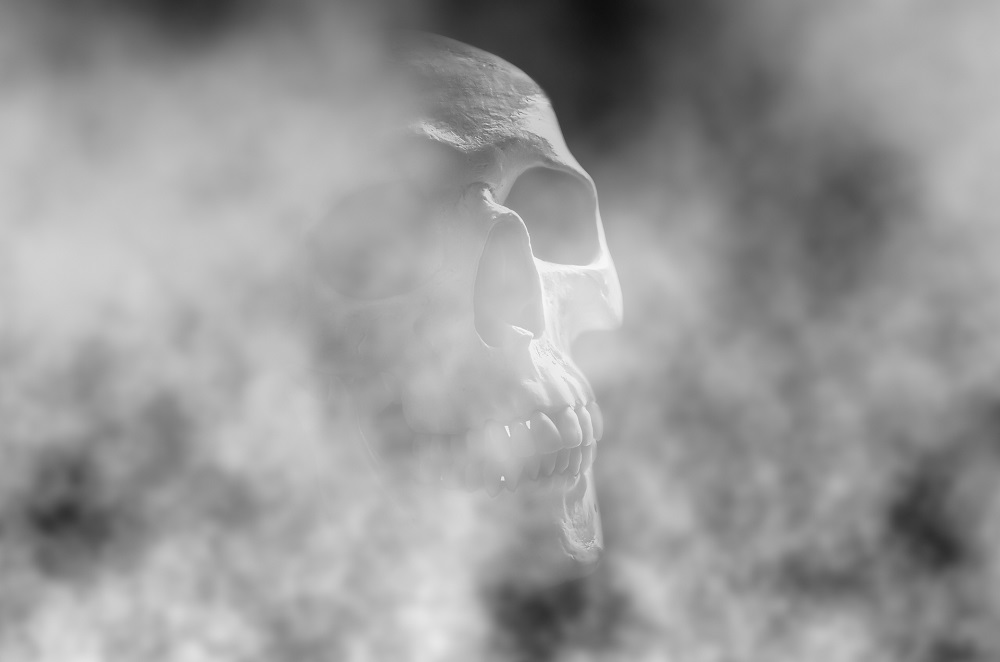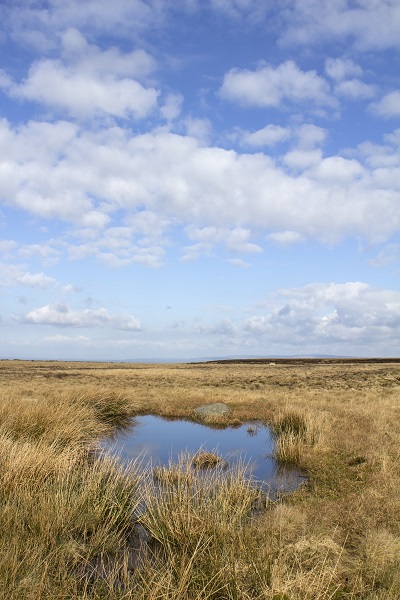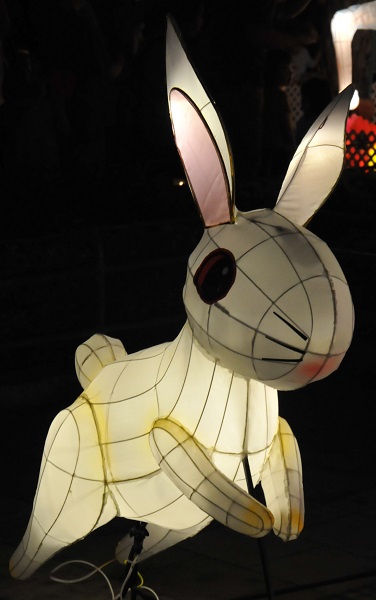THE RED SWAN (The Indian Fairy Book, 1869) BY CORNELIUS MATHEWS
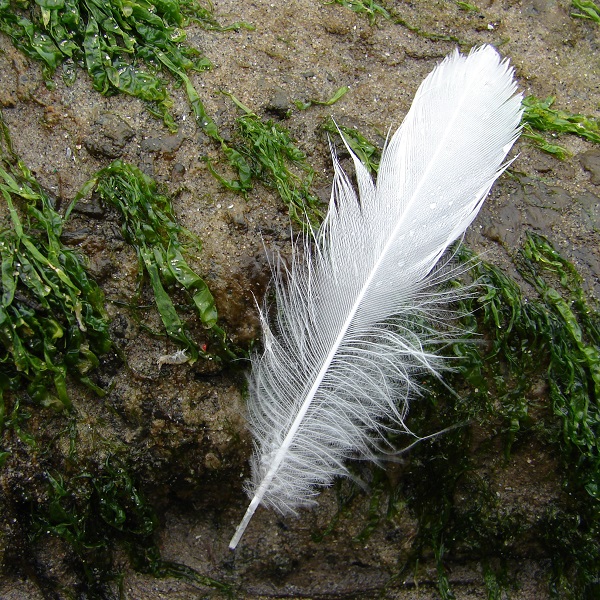
Three brothers were left destitute, by the death of their parents, at an early age. The eldest was not yet able to provide fully for their support, but he did all that he could in hunting; and with this aid, and the stock of provisions already laid by in the lodge, they managed to keep along. They had no neighbors to lend them a helping hand, for the father had withdrawn many years before from the body of the tribe, and had lived ever since in a solitary place. The lads had no idea that there was a human being near them. They did not even know who their parents had been; for, at the time of their death, the eldest was too young to remember it.
Forlorn as they were, they however kept a good heart, and making use of every chance, in course of time they all acquired a knowledge of hunting and the pursuit of game. The eldest became expert in the craft of the forest, and he was very successful in procuring food. He was noted for his skill in killing buffalo, elk, and moose; and he instructed his brothers, so that each should become a master over a particular animal which was assigned to him.
After they had become able to hunt and to take care of themselves, the elder proposed to leave them and to go in search of the world, promising to return as soon as he could procure them wives. In this intention he was overruled by his brothers, who said that they could not part with him.
Jeekewis, the second, was loud in disapproval of the scheme, saying: “What will you do with those you propose to get? We have lived so long by ourselves, we can still do without them.” This counsel prevailed, and for a time the three brothers continued together.
One day they agreed to kill each a male of that kind of animal, which each was most expert in hunting, for the purpose of making quivers from their skins. When these quivers were prepared, they were straightway filled, with arrows; for they all had a presentiment that something was about to happen which called upon them to be ready.
Soon after they hunted on a wager to see who should come in first with game, and have the privilege of acting as entertainer to the others. They were to shoot no other beast or bird than such as each was in the habit of killing.
They set out on different paths. Maidwa, the youngest, had not gone far before he saw a bear, an animal he was not to kill, by the agreement. He, however, followed him closely, and driving an arrow through and through him, he brought him to the ground.
Although contrary to the engagement with his brothers, Maidwa commenced skinning him, when suddenly something red tinged the air all around him. He rubbed his eyes, thinking he was perhaps deceived; but rub as hard as he would, the red hue still crimsoned the air, and tinged every object that he looked on—the tree-tops, the river that flowed, and the deer that glided away along the edge of the forest—with its delicate splendor.
As he stood musing on this fairy spectacle, a strange noise came to his ear from a distance. At first it seemed like a human voice. After following the sound he reached the shore of a lake. Floating at a distance upon its waters sat a most beautiful Red Swan, whose plumage glittered in the sun, and when it lifted up its neck, it uttered the peculiar tone he had heard. He was within long bow-shot, and, drawing the arrow to his ear, he took a careful aim and discharged the shaft. It took no effect. The beautiful bird sat proudly on the water, still pouring forth its peculiar chant, and still spreading the radiance of its plumage far and wide, and lighting up the whole world, beneath the eye of Maidwa, with its ruby splendors.
He shot again and again, till his quiver was empty, for he longed to possess so glorious a creature. Still the swan did not spread its wings to fly, but, circling round and round, stretched its long neck and dipped its bill into the water, as if indifferent to mortal shafts.
Maidwa ran home, and bringing all the arrows in the lodge, shot them away. He then stood with his bow dropped at his side, lost in wonder, gazing at the beautiful bird.
While standing thus, with a heart beating more and more eagerly every moment for the possession of this fair swan, Maidwa remembered the saying of his elder brother, that in their deceased father’s medicine-sack were three magic arrows; but his brother had not told Maidwa that their father, on his death-bed, which he alone had attended, had especially bequeathed the arrows to his youngest son, Maidwa, from whom they had been wrongfully kept. The thought of the magic arrows put heart in Maidwa, and he hastened with all speed to secure them.
At any other time he would have shrunk from opening his father’s medicine-sack, but something prompted him to believe that there was no wrong now, and snatching them forth he ran back, not staying to restore the other contents to the sack, but leaving them scattered, here and there, about the lodge.
He feared, as he returned, that the swan must by this time have taken wing; but, as he emerged from the wood, to his great delight the air was as rosy as ever, and there, in her own serene and beautiful way, still sat the glorious Red Swan.
With trembling hand he shot the first of his magic shafts: it grazed a wing. The second came closer, and cut away a few of the bright red feathers, which fluttered and fell like flakes of fire in the water. The third, which he carefully aimed and drew home upon the string with all his force, made the lucky hit, and passed through the neck of the bird a little above the breast.
“The bird is mine,” said Maidwa, to himself; but to his great surprise, instead of seeing it droop its neck and drift to the shore, the Red Swan flapped its wings, rose slowly, and flew off with a majestic motion toward the falling sun.
Maidwa, that he might meet his brothers, rescued two of the magic arrows from the water; and although the third was borne off, he had a hope yet to recover that too, and to be master of the swan. He was noted for his speed; for he would shoot an arrow and then run so fast that the arrow always fell behind him; and he now set off at his best speed of foot. “I can run fast,” he thought, “and I can get up with the swan some time or other.”
He sped on, over hills and prairies, toward the west, and was only going to take one more run, and then seek a place to sleep for the night, when, suddenly, he heard noises at a distance, like the murmur of waters against the shore; as he went on, he heard voices, and presently he saw people, some of whom were busy felling trees, and the strokes of their labor echoed through the woods. He passed on, and when he emerged from the forest, the sun was just falling below the edge of the sky.
He was bent on success in pursuit of the swan, whose red track he marked well far westward till she was lost to sight. Meanwhile he would tarry for the night and procure something to eat, as he had fasted since he had left home.
At a distance, on a rising ground, he could see the lodges of a large village. He went toward it, and soon heard the watchman, who was set on a height to overlook the place, and give notice of the approach of friends or foes, crying out, “We are visited;” and a loud halloo indicated that they had all heard it.
When Maidwa advanced, the watchman pointed to the lodge of the chief. “It is there you must go in,” he said, and left him.
“Come in, come in,” said the chief; “take a seat there;” pointing to the side of the lodge where his daughter sat. “It is there you must sit.”
They gave him something to eat, and, being a stranger, very few questions were put to him; it was only when he spoke that the others answered him.
“Daughter,” said the chief, as soon as the night had set in, “take our son-in-law’s moccasins and see if they be torn; if so, mend them for him, and bring in his bundle.”
Maidwa thought it strange that he should be so warmly received, and married instantly against his own wishes, although he could not help noticing that the chief’s daughter was pretty.
It was some time before she would take the moccasins which he had laid off. It displeased him to see her loth to do so; and when at last she did reach them, he snatched them from her hand and hung them up himself. He lay down and thought of the swan, and made up his mind to be off with the dawn. He wakened early, and finding the chief’s daughter looking forth at the door, he spoke to her, but she gave no answer. He touched her lightly.
“What do you want?” she said, and turned her face away from him.
“Tell me,” said Maidwa, “what time the swan passed. I am following it; come out, and point the way.”
“Do you think you can overtake it?” she said.
“Yes,” he answered.
“Naubesah—fool!” retorted the chief’s pretty daughter.
She, however, went out, and pointed in the direction he should go. The young man paced slowly along till the sun arose, when he commenced traveling at his accustomed speed. He passed the day in running, and although he could not see anywhere on the horizon the Red Swan, he thought that he discerned a faint red light far over in the west.
When night came, he was pleased to find himself near another village; and when at a distance he heard the watchman crying out, “We are visited;” and soon the men of the village stood out to see the stranger.
He was again told to enter the lodge of the chief, and his reception was in every respect the same as on the previous night; except that the young woman was more beautiful, and that she entertained him very kindly. Although urged to stay with them, the mind of Maidwa was fixed on the object of his journey.
Before daybreak he asked the young woman at what time the Red Swan passed, and to point out the way. She marked against the sky with her finger the course it had taken, and told him that it had passed yesterday when the sun was between mid-day and its falling-place.
Maidwa again set out rather slowly, but when the sun had risen, he tried his speed by shooting an arrow ahead, and running after it; but it fell behind him, and he knew that he had lost nothing of his quickness of foot.
Nothing remarkable happened through the day, and he went on leisurely. Some time after dark, as he was peering around the country for a shelter, he saw a light emitted from a small low lodge. He went up to it very slyly, and, peeping through the door, he discovered an old man alone, with his head down upon his breast, warming his back before the fire.
Maidwa thought that the old man did not know that he was standing near the door; but in this he was mistaken; for, without turning his eyes to look at him, the old man said, “Walk in, my grandchild; take a seat opposite to me, and take off your things and dry them, for you must be fatigued; and I will prepare you something to eat; you shall have something very delicate.”
Maidwa accepted this kind invitation, and entered the lodge. The old man then remarked, as if in mere course of conversation: “My kettle with water stands near the fire;” and immediately a small earthen pot with legs appeared by the fire. He then took one grain of corn, also one of whortleberry, and put them in the pot.
Maidwa was very hungry, and seeing the limited scale of the old man’s housekeeping, he thought his chance for a supper was very slight. The old man had promised him something very delicate, and he seemed likely to keep his word. Maidwa looked on silently, and did not change his face any more than if the greatest banquet that was ever spread had been going forward.
The pot soon boiled, when the old man said in a very quiet way:
“The pot will stand at a distance from the fire.”
It removed itself, and the old man added to Maidwa:
“My grandchild, feed yourself;” handing him at the same time a dish and ladle of the same ware as the pot itself.
The young man, whose hunger was very great, helped himself to all that was in the pot. He felt ashamed to think that he had done so, but before he could speak the old man said:
“Eat, nay grandchild; eat, eat!” and soon after he again said—”Help yourself from the pot.”
Maidwa was surprised, on dipping in his ladle, to see that it was full; and although he emptied it a second time, it was still again filled and refilled till his hunger was entirely satisfied. The old man then observed, without raising his voice:
“The pot will return to its corner;” and the pot took itself off to its accustomed place in an out-of-the-way corner of the lodge.
Maidwa observed that the old man was about to address him, and took an attitude which showed that he was prepared to listen.
“Keep on, my grandchild,” said the old man “you will surely gain that you seek. To tell you more I am not permitted; but go on as you have begun and you will not be disappointed. To-morrow you will again reach one of my fellow old men, but the one you will see after him will tell you all, and the manner in which you must proceed to accomplish your journey. Often has this Red Swan passed, and those who have followed it have never returned; but you must be firm in your resolution, and be prepared for all that may happen.”
“So will it be,” answered Maidwa; and they both laid down to sleep.
Early in the morning the old man ordered his magic kettle to prepare breakfast, so that his guest might eat before leaving. As Maidwa passed out, the old man gave him a blessing with his parting advice.
Maidwa set forth in better spirits than at any time since he had started. Night again found him in company with an old man who entertained him kindly, with a frisky little kettle which hurried up to the fire before it was spoken to, bustled about and set his supper briskly before Maidwa, and frisked away again, without waiting for orders. The old man also carefully directed him on his way in the morning.
He traveled with a light heart, as he now expected to meet the one who was to give him directions how to proceed to get the Red Swan
Toward night-fall Maidwa reached the lodge of the third old man. Before coming to the door he heard him saying:
“Grandchild, come in;” and going in promptly he felt quite at home.
The old man prepared him something to eat, acting as the other magicians had done, and his kettle was of the same size, and looked as if it were an own brother of the two others which had feasted him, except that this kettle, in coming and going about its household duties, would make a passing remark, or sing a little tune for itself.
The old man waited until Maidwa had fully satisfied his hunger, when he addressed him:
“Young man, the errand you are bound on is beset with trials and difficulties. Numbers have passed with the same purpose as that which now prompts you, but they never returned. Be careful, and if your guardian spirits are powerful you may succeed. This Red Swan you are following is the daughter of a magician who has abundance of every thing, but only this one child, whom he values more than the sacred arrows. In former times he wore a cap of wampum, which was attached to his scalp; but powerful Indians, warriors of a distant chief, came and told him that their chief’s daughter was on the brink of the grave, and that she herself requested his wampum-cap, which she was confident would save her life. ‘If I can only see it,’ she said, ‘I will recover.’ It was for this cap they had come, and after long solicitation the magician at length consented to part with it, in the hope that it would restore to health the dying maiden, although when he took it off to hand it to the messengers it left the crown of his head bare and bloody. Years have passed since, and it has not healed. The coming of the warriors to procure it for the sick maiden was a cheat, and they are now constantly making sport of the unhappy scalp—dancing it about from village to village—and on every insult it receives the poor old chief to whom it belongs groans with pain. Those who hold it are too powerful for the magician, and many have sacrificed themselves to recover it for him, but without success. The Red Swan has enticed many a young man, as she has you, to enlist them to procure the scalp, and whoever is so fortunate as to succeed, it is understood, will receive the Red Swan as his reward. In the morning you will proceed on your way, and toward evening you will come to this magician’s lodge. You will know it by the groans which you will hear far over the prairie as you approach. He will ask you in. You will see no one but himself. He will question you much as to your dreams and the strength of your guardian spirits. If he is satisfied with your answers, he will urge you to attempt the recovery of his scalp. He will show you the course to take, and if you feel inclined, as I see that you do, go forward, my son, with a strong heart; persevere, and I have a presentiment that you will succeed.”
Maidwa answered, “I will try.”
Betimes in the morning, after having eaten from the magic kettle, which sung a sort of farewell chant on its way from the fire-place to its station in the corner, he set off on his journey.
Toward evening, Maidwa, as he crossed a prairie, heard, as had been predicted, groans from a distant lodge, which were only interrupted by a voice from a person whom he could not see, calling to him aloud:
“Come in! come in!”
On entering the lodge, the magician heaved a great groan from the very bottom of his chest, and Maidwa saw that the crown of his head was all bare and bloody.
“Sit down, sit down,” he said, “while I prepare you something to eat. You see how poor I am. I have to attend to all my own wants, with no other servant than that poor little kettle in the corner. Kettle, we will have something to eat, if you please.”
“In a moment,” the kettle spoke up from the corner.
“You will oblige me by making all the dispatch you can,” said the magician, in a very humble tone, still addressing the kettle.
“Have patience,” replied the kettle, “and I will be with you presently.”
After a considerable delay, there came forward out of the corner from which it had spoken, a great heavy-browed and pot-bodied kettle, which advanced with much stateliness and solemnity of manner till it had come directly in front of the magician, whom it addressed with the question:
“What shall we have, sir?”
“Corn, if you please,” the magician answered.
“No, we will have whortleberries,” rejoined the kettle, in a firm voice.
“Very well; just as you choose.”
When he supposed it was time, the magician invited Maidwa to help himself.
“Hold a minute,” interposed the kettle, as Maidwa was about to dip in his ladle. He paused, and after a delay, the kettle, shaking itself up and simmering very loudly, said, “Now we are ready.”
Maidwa fell to and satisfied his hunger.
“Will the kettle now withdraw?” asked the magician, with am air of much deference.
“No,” said the kettle, “we will stay and hear what the young man has to say for himself.”
“Very well,” said the magician. “You see,” he added to Maidwa, “how poor I am. I have to take counsel with the kettle, or I should be all alone, without a day’s food, and with no one to advise me.”
All this time the Red Swan was carefully concealed in the lodge, behind a curtain, from which Maidwa heard now and then a rustling noise, that fluttered his spirits and set his heart to beating at a wonderful rate.
As soon as Maidwa had partaken of food and laid aside his leggings and moccasins, the old magician commenced telling him how he had lost his scalp, the insults it was receiving, the pain he suffered thereby, his wishes to regain it, the many unsuccessful attempts that had already been made, and the numbers and power of those who retained it. He would interrupt his discourse, at times, with sudden groans, and say:
“Oh, how shamefully they are treating it.”
Maidwa listened to all the old magician had to say with solemn attention.
The magician renewed his discourse, and inquired of Maidwa as to his dreams, or what he saw in his sleep, at such times as he had fasted and darkened his face to procure guardian spirits.
Maidwa then told him one dream. The magician groaned.
“No, that is not it,” he said.
Maidwa told him of two or three others.
The magician groaned again and again, and said, rather peevishly, “No, these are not the dreams.”
“Keep cool,” said the kettle, which had left the fire, and was standing in the middle of the floor, where a pleasant breeze was blowing through the lodge, and added, “Have you no more dreams of another kind?”
“Yes,” said Maidwa; and he told him one.
“That will do,” said the kettle. “We are much pleased with that.”
“Yes, that is it—that is it!” the magician added. “You will cause me to live. That was what I was wishing you to say. Will you then go and see if you can not recover my poor scalp?”
“Yes,” said Maidwa, “I will go; and the day after to-morrow, when you hear the ka-kak cries of the hawk, you will know that I am successful. You must prepare your head, and lean it out through the door, so that the moment I arrive I may place your scalp on.”
“Yes, yes,” said the magician. “As you say it will be done.”
Early the next morning Maidwa set out to fulfill his promise; and in the afternoon, when the sun hangs toward home, he heard the shouts of a great many people. He was in a wood at the time, and saw, as he thought, only a few men, but as he went on they increased in numbers. On emerging upon the plain, their heads appeared like the hanging leaves, they were so many.
In the middle of the plain he perceived a post, and something waving at its top. It was the wampum scalp; and every now and then the air was rent with the war-song, for they were dancing the war-dance in high spirit around it.
Before he could be observed, Maidwa changed himself into a humming-bird, and flew toward the scalp. As he passed some of those who were standing by, he came close to their ears, and as they heard the rapid whirr or murmur which this bird makes when it flies, they jumped aside, and asked each other what it could be. Maidwa had nearly reached the scalp, but fearing that he should be perceived while untying it, he again changed himself into the down that floats lightly on the air, and sailed slowly on to the scalp. He loosened it, and moved off heavily, as the weight was almost too great for him to bear up. The Indians around would have snatched it away had not a lucky current of air just then buoyed him up. As they saw that it was moving away they cried out, “It is taken from us! it is taken from us!”
Maidwa was borne gently along but a little way above their heads; and as they followed him, the rush and hum of the people was like the dead beating of the surges upon a lake shore after a storm. But the good wind gaining strength, soon carried him beyond their pursuit. A little further on he changed himself into a hawk, and flew swiftly off with his trophy, crying, “Ka-kak! ka-kak!” till it resounded with its shrill tone through the whole country, far and wide.
Meanwhile the magician had remembered the instructions of Maidwa, placing his head outside of the lodge as soon as he heard the ka-kak cry of the hawk.
In a moment Maidwa came past with rustling wings, and as he flew by, giving the magician a severe blow on the head with the wampum scalp, his limbs extended and quivered in an agony, the scalp adhered, and Maidwa, in his own person, walked into the lodge and sat down, feeling perfectly at home.
The magician was so long in recovering from the stunning blow which had been dealt him, that Maidwa feared that in restoring the crown of his head he had destroyed his life. Presently, however, he was pleased to see him show, by the motion of his hands and limbs, that his strength was returning; and in a little while he rose and stood upon his feet. What was the delight of Maidwa to behold, instead of a withered old man, far advanced in years and stricken in sorrow, a bright and cheerful youth, who glittered with life as he stood up before him.
“Thank you, my friend,” he said. “Your kindness and bravery of heart have restored me to my former shape. It was so ordained, and you have now accomplished the victory.”
They embraced; and the young magician urged the stay of his deliverer for a few days, and they formed a strong attachment to each other. The magician, to the deep regret of Maidwa, never once alluded to the Red Swan in all their conferences.
At last the day arrived when Maidwa prepared to return to his home. The young magician bestowed on him ample presents of wampum, fur, robes, and other costly things. Although Maidwa’s heart was burning within him to see the Red Swan, to hear her spoken of, and to learn what his fortune was to be in regard to that fond object of his pursuit, he constrained his feelings, and so checked his countenance as to never look where he supposed she might be. His friend the young magician observed the same silence and caution.
Maidwa’s pack for traveling was now ready, and he was taking his farewell smoke, when the young magician thus addressed him: “My friend Maidwa, you know for what cause you came thus far, and why you have risked so much and waited so long. You have proved my friend indeed. You have accomplished your object, and your noble perseverance shall not go unrewarded. If you undertake other things with the same spirit, you will always succeed. My destiny compels me to remain where I am, although I should feel happy to be allowed to go with you. I have given you, of ordinary gifts, all you will need as long as you live; but I see you are backward to speak of the Red Swan. I vowed that whoever procured me my lost wampum-scalp should be rewarded by possessing the Red Swan.”
He then spoke in a language which Maidwa did not understand, the curtain of the lodge parted, and the Red Swan met his gaze. It was a beautiful female that he beheld, so majestical and airy in her look, that he seemed to see a creature whose home should rather be in the free heaven, and among the rosy clouds, than in this dusky lodge.
“Take her,” the young magician said; “she is my sister; treat her well. She is worthy of you, and what you have done for me merits more. She is ready to go with you to your kindred and friends, and has been so ever since your arrival; and my good wishes shall go with you both.”
The Red Swan smiled kindly on Maidwa, who advanced and greeted her. Hand in hand they took their way forth from the lodge, and, watched by the young magician, advanced across the prairie on their homeward course.
They traveled slowly, and looked with double joy on the beautiful country over which they had both so lately passed with hearts ill at ease.
After two or three days they reached the lodge of the third old man who had entertained him with the singing kettle; but the kettle was not there. The old man, nevertheless, received them very kindly, and said to Maidwa, “You see what your perseverance has secured you; do so always, and you will succeed in whatever you undertake.”
On the following morning, when they were about to start, he pulled from the side of the lodge a bag, which he presented to Maidwa, saying, “Grandchild, I give you this; it contains a present for you; and I hope you will live happily till old age.”
Bidding him farewell, they again set forward; and they soon came to the second old man’s lodge; he also gave them a present and bestowed his blessing. Nor did Maidwa see any thing here of the frisky little kettle which had been so lively on his former visit.
As they went on and came to the lodge of the first old man, their reception and farewell were the same; and when Maidwa glanced to the corner, the silent kettle, which had been the first acquaintance he had made in that family on his travels, was not there. The old man smiled when he discovered the direction of Maidwa’s glance, but he said nothing.
When, on continuing their journey, they at last approached the first town which Maidwa had passed in his pursuit, the watchman gave notice as before, and he was shown into the chief’s lodge.
“Sit down there, son-in-law,” said the chief, pointing to a place near his daughter. “And you also,” he said to the Red Swan.
The chief’s daughter was engaged in coloring a girdle, and, as if indifferent to these visitors, she did not even raise her head. Presently the chief said, “Let some one bring in the bundle of our son-in-law.”
When the bundle was laid before him, Maidwa opened one of the bags which had been given to him. It was filled with various costly articles—wampum, robes, and trinkets, of much richness and value; these, in token of his kindness, he presented to the chief. The chief’s daughter stole a glance at the costly gifts, then at Maidwa and his beautiful wife. She stopped working, and was silent and thoughtful all the evening. The chief himself talked with Maidwa of his adventures, congratulated him on his good fortune, and concluded by telling him that he should take his daughter along with him in the morning.
Maidwa said “Yes.”
The chief then spoke up, saying, “Daughter, be ready to go with him in the morning.”
Now it happened when the chief was thus speaking that there was a foolish fellow in the lodge, who had thought to have got this chief’s daughter for a wife; and he jumped up, saying:
“Who is he,” looking grimly at Maidwa, “that he should take her for a few presents? I will kill him.”
And he raised a knife which he had in his hand, and gave it a mighty flourish in the air. He kept up this terrible flourish till some one came and pulled him back to his seat, which he had been waiting for, and then he sat quiet enough.
Amid the greetings of their new friends, Maidwa and the Red Swan, with the chief’s daughter, took their leave by peep of day, and toward evening they reached the other town. The watchman gave the signal, and numbers of men, women and children stood out to see them. They were again shown into the chief’s lodge, who welcomed him, saying:
“Son-in-law, you are welcome.”
And he requested Maidwa to take a seat by his daughter, and the two women did the same.
After suitable refreshment for all, and while Maidwa smoked a pipe, the chief asked him to relate his adventures in the hearing of all the inmates of the lodge, and of the strangers who had gathered in at report of his singular fortunes.
Maidwa gave them his whole story. When he came to those parts which related to the Red Swan, they turned and looked upon her in wonder and admiration, for she was very beautiful.
The chief then informed Maidwa that his brothers had been to their town in search of him, but that they had gone back some time before, having given up all hopes of ever seeing him again. He added, that since he had shown himself a man of spirit, whom fortune was pleased to befriend, he should take his daughter with him.
“For although your brothers,” he said, “were here, they were too bashful to enter any of our lodges. They merely inquired for you and returned. You will take my daughter, treat her well, and that will bind us more closely together.”
It is always the case in an assembly or gathering that some one of the number is foolish, and disposed to play the clown. It happened to be so here. One of this very sort was in the lodge, and, after Maidwa had given the old chief presents, as he had to the other, this pretender jumped up in a passion, and cried out:
“Who is this stranger, that he should have her? I want her myself.”
The chief bade him be quiet, and not to disturb or quarrel with one who was enjoying their hospitality.
“No, no,” he exclaimed, rushing forward as in act to strike.
Maidwa sat unmoved, and paid no heed to his threats.
He cried the louder—”I will have her, I will have her!” whereupon the old chief, being now vexed past patience, took his great war-club and tapped this clownish fellow upon the head, which so far subdued him that he sat for some time quite still; when, after a while, he came to himself, the chief upbraided him for his folly, and told him to go out and tell stories to the old women.
When at last Maidwa was about to leave, he invited a number of the families of the chief to go with him and visit their hunting-grounds, where he promised them that they would find game in abundance. They consented, and in the morning a large company assembled and joined Maidwa; and the chief, with a party of warriors, escorted them a long distance. When ready to return, the chief made a speech and besought the blessing of the Good Spirit on Maidwa and his friends.
They parted, each on its course, making music with their war-drums, which could be heard from afar as they glittered with waving feathers in the morning sun, in their march over the prairie, which was lost in the distant sky.
After several days’ travel, Maidwa and his friends came in sight of his home. The others rested within the woods while he went alone in advance to see his brothers.
He entered the lodge. It was all in confusion and covered with ashes. On one side, sitting among the cinders, with his face blackened, and crying aloud, was his elder brother. On the other side sat the younger, Jeekewis, also with blackened face, his head covered with stray feathers and tufts of swan-down. This one presented so curious a figure that Maidwa could not keep from laughing. He seemed to be so lost and far-gone in grief that he could not notice his brother’s arrival. The eldest, however, after a while, lifting up his head, recognized Maidwa, jumped up and shook hands, and kissed him, and expressed much joy at his return.
Maidwa, as soon as he had seen the lodge set in order, made known that he had brought each of them a wife. As soon as Jeekewis heard a wife spoken of, he roused from his torpor, sprang to his feet, and said:
“Why is it just now that you have come?” and at once made for the door and peeped out to see the strangers. He then commenced jumping and laughing, and crying out, “Women! women!” and that was all the reception he gave his brother. Maidwa told them to wash themselves and prepare, for he would go and fetch the females in.
Jeekewis scampered about, and began to wash himself; but he would every now and then, with one side of his head all feathers, and the other clear and shining, peep forth to look at the women again. When they came near, he said, “I will have this and that one;” he did not exactly know which; he would sit down for an instant, and then rise, and peep about and laugh; in fact he acted like one beside himself.
As soon as order was restored, and all the company who had been brought in were seated, Maidwa presented one of the chief’s daughters to his eldest brother, saying: “These women were given to me, to dispose of in marriage. I now give one to each. I intended so from the first.”
Jeekewis spoke up and said, “I think three wives would have been enough for you.”
Maidwa led the other daughter to Jeekewis, and said, “My brother, here is one for you, and live happily.”
Jeekewis hung down his head as if he was ashamed, but he would every now and then steal a look at his wife and also at the other women.
By and by he turned toward his wife and acted as if he had been married for years.
Maidwa seeing that no preparation had been made to entertain the company, said, “Are we to have no supper?”
He had no sooner spoken, than forth from a corner stepped the silent kettle, which placed itself by the fire, and began bubbling and boiling quite briskly. Presently that was joined by the big talking kettle, which said, addressing itself to Maidwa, “Master, we shall be ready presently;” and then, dancing along, came, from still another, the frisky little kettle, which hopped to their side, and took an active part in the preparations for the evening meal. When all was nearly ready, a delicate voice was heard singing in the last corner of the lodge, and keeping up its dainty carol all the way to the fire-place, the fourth kettle joined the three cooks, and they all fell to with all their might, and in the best possible humor, to dispatch their work.
It was not long before the big kettle advanced toward Maidwa, and said, in his own confident way, “Supper is ready!”
The feast was a jovial one; and although they were all hungry, and plied their ladles with right good will, yet, dip in as often as they would, the four magic kettles held out, and had plenty to the end of the revel.
To draw to a close, Maidwa and his friends lived in peace for a time; their town prospered; there was no lack of children; and every thing else was in abundance.
One day the two brothers began to look dark upon Maidwa, and to reproach him for having taken from the medicine-sack their deceased father’s magic arrows; they upbraided him especially that one was lost.
After listening to them in silence, he said that he would go in search of it, and that it should be restored; and the very next day, true to his word, he left them.
After traveling a long way, and looking in every direction, almost hopeless of discovering the lost treasure, he came to an opening in the earth, and descending, it led him to the abode of departed spirits. The country appeared beautiful, the pastures were greener than his own, and the sky bluer than that which hung over the lodge, and the extent of it was utterly lost in a dim distance; and he saw animals of every kind wandering about in great numbers. The first he came to were buffalos; his surprise was great when they addressed him as human beings.
They asked him what he came for, how he had descended, and why he was so bold as to visit the abode of the dead.
He answered that he was in quest of a magic arrow, to appease the anger of his brothers.
“Very well,” said the leader of the buffalos, whose form was nothing but bone. “Yes, we know it,” and he and his followers moved off a little space from Maidwa, as if they were afraid of him. “You have come,” resumed the buffalo-spirit, “to a place where a living man has never before been. You will return immediately to your tribe, for, under pretense of recovering one of the magic arrows which belong to you by your father’s dying wish, they have sent you off that they might become possessed of your beautiful wife, the Red Swan. Speed home! You will find the magic arrow at the lodge-door. You will live to a very old age, and die happily. You can go no further in these abodes of ours.”
Maidwa looked, as he thought, to the west, and saw a bright light as if the sun was shining in its splendor, but he saw no sun.
“What light is that yonder?” he asked.
The all-boned buffalo answered—”It is the place where those who were good dwell.”
“And that dark cloud?” Maidwa again asked.
“It is the place of the wicked,” answered the buffalo.
Maidwa turned away, for it was very dark, and it pained his eyes to look upon it; and, moving away by the aid of his guardian spirits, he again stood upon the earth, and beheld the sun giving light as usual.
All else that he learned in the abodes of the dead, and his travels and acts previous to his return homeward, are unknown, for he never spoke of them to any human being.
After wandering a long time to gather knowledge to make his people happy and to add to their comfort, he one evening drew near to his own village. Passing all the other lodges he came to his own door, where he found the magic arrow, as he had been promised. He heard his brothers from within at high words with each other. They were quarreling for the possession of his wife, who, through all his absence, had remained constant, and sadly awaited his return. Maidwa listened in shame and sorrow.
He entered the lodge, holding his head aloft as one conscious of good principle and shining with anger. He spoke not a word, but, placing the magic arrow to his bow, he would have laid his brothers dead at his feet; but just then the talking kettle stepped forward and spoke such words of wisdom, and the singing kettle trolled forth such a soothing little song, and the guilty brothers were so contrite and keenly repentant of their intended wrong, and the Red Swan was so radiant and forgiving, the silent kettle straightway served them up so hearty and wholesome a meal, and the frisky little kettle was so joyful and danced about so merrily, that when the magic arrows were laid away in the medicine-sack by Maidwa, there was that night in all the Indian country no happier family than the three brothers, who ever after dwelt together in all kindness, as all good brothers should.


